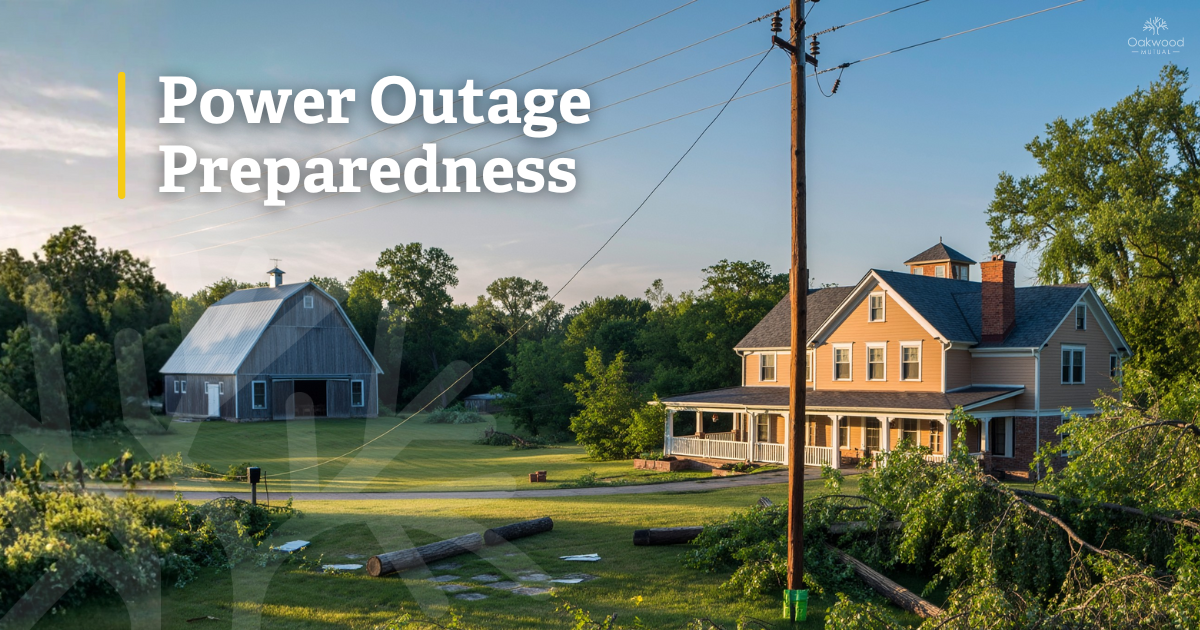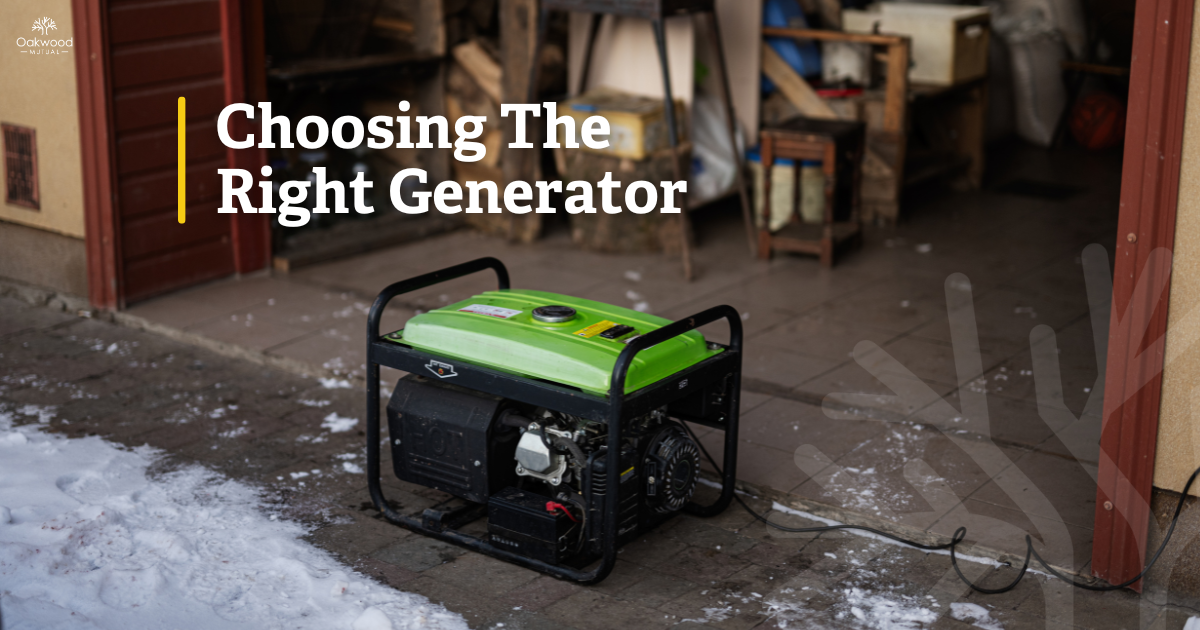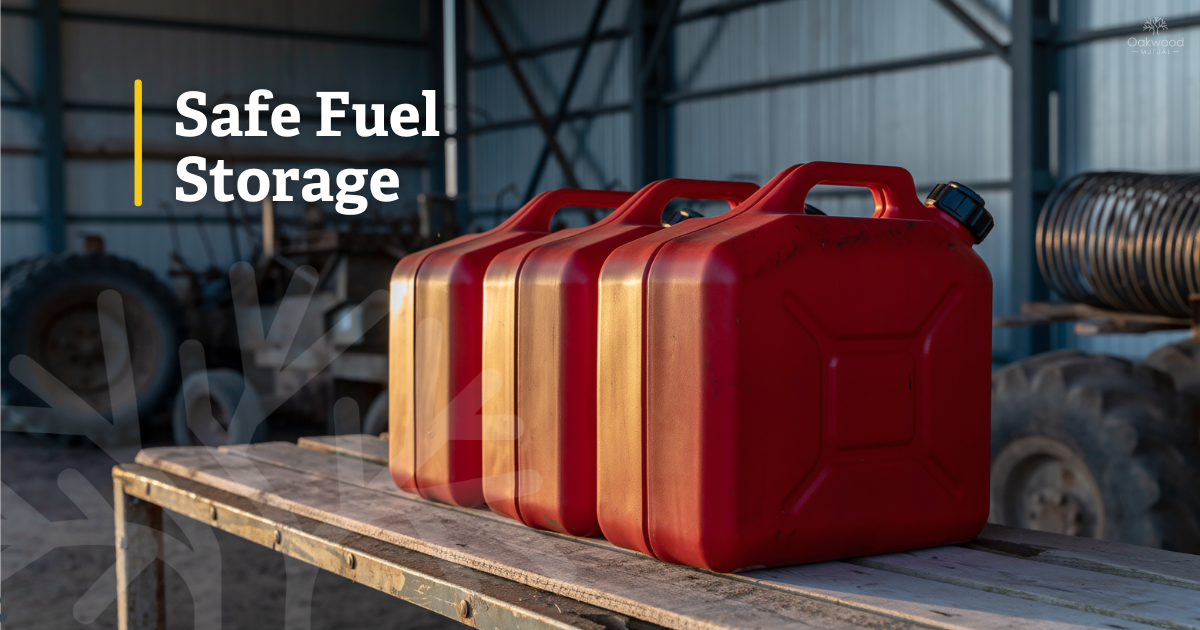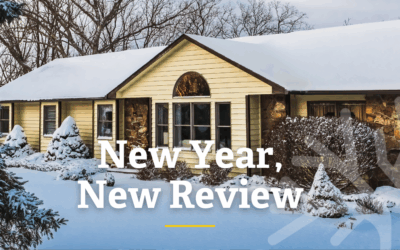 When you live in rural Indiana, losing power is not just a brief inconvenience. It can disrupt your water supply, spoil food quickly, and even make your home unsafe during extreme temperatures. That is why every rural homeowner should have a clear plan in place for power outages, especially as severe weather becomes more frequent and unpredictable.
When you live in rural Indiana, losing power is not just a brief inconvenience. It can disrupt your water supply, spoil food quickly, and even make your home unsafe during extreme temperatures. That is why every rural homeowner should have a clear plan in place for power outages, especially as severe weather becomes more frequent and unpredictable.
Let’s explore how you can prepare your rural home for outages with practical solutions and a focus on safety.
Why Power Loss Hits Rural Areas Harder
When storms or extreme weather hit, rural areas often experience longer delays in power restoration. Fewer service technicians cover wider territories, and access to remote homes may be delayed due to downed trees or blocked roads.
For many Indiana homeowners who rely on well water, electricity is needed just to access safe drinking water. If your heating system or sump pump is electric, a power loss can pose even more serious risks. These realities make it essential to have an emergency backup plan.
If you have not already reviewed your seasonal risks, check out our Spring Storms blog to understand how rural weather patterns can impact your property and preparedness planning.

Backup Generators: Choosing the Right One
A reliable generator is one of the best investments for rural homes. But not all generators are created equal. The right choice depends on your needs, property layout, and budget.
Portable Generators
These are the most affordable option and can power essential items like refrigerators, sump pumps, or space heaters. However, they require manual setup and fuel refilling. Always operate them outdoors to avoid carbon monoxide buildup.
Standby Generators
These systems are wired directly into your electrical panel and kick in automatically when power is lost. They are more expensive upfront but are ideal for homes that rely on electricity for water supply, heating, and livestock care.
Not sure how to choose? A personal insurance review can help you determine what systems are most essential and how to protect them under your current policy. Learn more in our Insurance Review blog.
 Fuel Storage and Safety Tips
Fuel Storage and Safety Tips
If you are relying on a generator, you will need a supply of fuel. But storing fuel on your property comes with safety concerns.
- Keep gasoline or diesel in approved containers, away from living areas and heat sources
- Store fuel in a cool, dry shed or outbuilding, not inside the home or garage
- Rotate stored fuel every few months so it does not degrade
- Never refuel a hot generator. Let it cool first
Proper fuel storage is not only about safety. It may also impact your insurance policy. Storing flammable materials improperly could result in reduced coverage or denied claims. Be sure to speak with your agent about safe storage options for your home or outbuildings.
 Stocking Your Emergency Kit
Stocking Your Emergency Kit
When the lights go out, having a well-stocked emergency kit saves time and worry. Your kit should be stored in an easy-to-access location and include:
- Flashlights and batteries
- Non-perishable food and water for at least 72 hours
- A battery-operated or crank weather radio
- First-aid kit
- Prescription medications
- Warm blankets or sleeping bags
- Pet food and supplies
- Backup chargers for cell phones
We have more tips on seasonal home safety in our Home Protection Tips blog. Staying prepared is key to minimizing disruption.
Winter Risks and Heating Backup
In rural Indiana, winter storms are a top cause of outages. If your home relies on electric heat, the stakes are even higher. A power loss could lead to frozen pipes, structural damage, or health risks for vulnerable family members.
Make sure you have a backup heat source such as:
- A wood stove or fireplace
- Kerosene heaters rated for indoor use
- Propane space heaters with proper ventilation
These systems must be used safely and often require regular maintenance. Additionally, many policies require notification if you install alternative heat sources.
Working With a Local Agent
Power outages remind us how important it is to work with someone who understands your community. Oakwood’s independent agents live and work in the same Indiana towns you do. They know the risks of rural properties and how to ensure those risks are reflected in your policy.
Whether you have installed a generator, built a new outbuilding, or started storing fuel, talking with your local Oakwood agent can help you adjust your policy for better protection. Use our Find an Agent tool to schedule a review today. Do not wait until the next storm knocks out your power.


